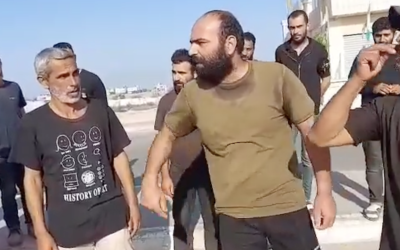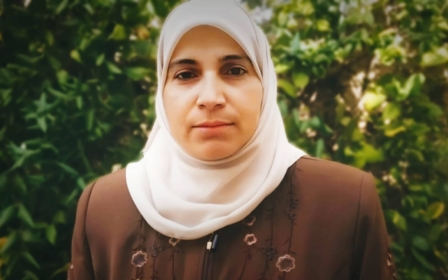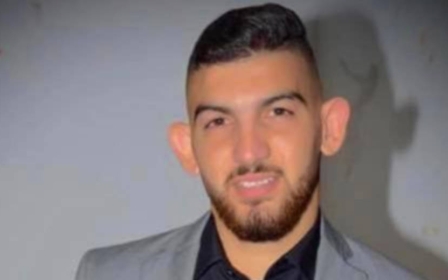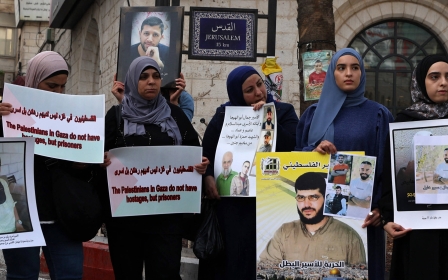Israel-Palestine war: Former Palestinian prisoner recounts ‘hell’ in Israeli jails
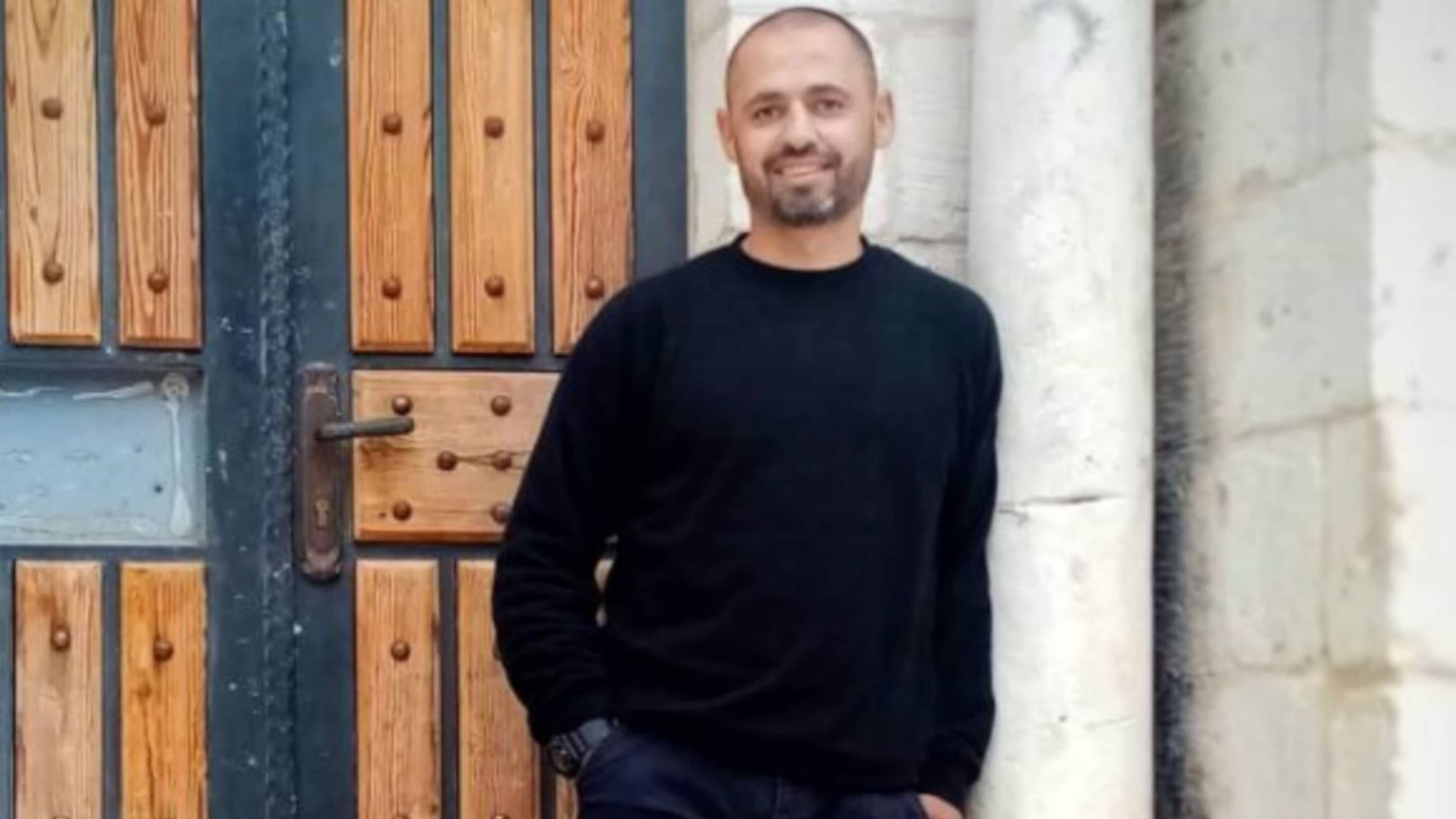
"Welcome to hell." The foreboding words of an Israeli prison guard ring in Fouad Hassan's ears.
It has been days since the 45-year-old was released from prison, where he was beaten, abused, and humiliated.
Ten days of detention were enough for Hassan to experience the horrors of what it means to be a Palestinian in Israeli prisons since 7 October.
On Monday morning, the Israeli Prisons Service announced the death of Palestinian prisoner Abdul-Rahman Maree, in Megiddo Prison, the same place where Hassan's ribs were broken and his body bruised.
Maree, a father of four, had been in prison since he was arrested in February on his way home, in the occupied West Bank, from work in Israel.
New MEE newsletter: Jerusalem Dispatch
Sign up to get the latest insights and analysis on Israel-Palestine, alongside Turkey Unpacked and other MEE newsletters
He was the fifth Palestinian to die in Israeli detention in unclear circumstances since 7 October, including one from Gaza whose identity is still unknown.
But Hassan was not surprised to hear of the prisoner's death, given the severity of the treatment that prisoners have been subjected to since the start of the war on Gaza.
Following an unprecedented Hamas-led attack on southern Israeli towns last month, which killed around 1,200 Israelis, Israel launched a relentless bombing campaign on Gaza, in addition to a violent crackdown on Palestinians in the occupied West Bank.
Follow Middle East Eye's live coverage of the Israel-Palestine war
The Israeli military has since conducted massive arrest campaigns and raids across Palestinian towns and cities in the occupied West Bank, killing scores.
Early in November, dozens of Israeli soldiers stormed Hassan's home in Qusra, threatening the whole family with arrest if his brother, Ibrahim, who was not present, did not surrender himself.
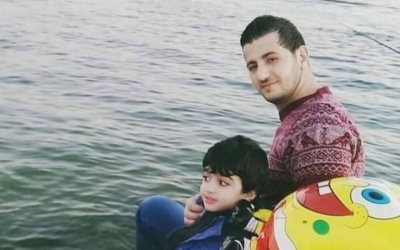
Ibrahim, who had previously been detained twice and shot in the kidney by Israeli forces in 2014, has since refused to give himself up because of the accounts of abuse being perpetrated in Israeli prisons that he has heard.
“Two days after we were threatened, dozens of soldiers stormed my house and those of my ten brothers, vandalising their contents, and arresting me after tying and blindfolding me,” Hassan said.
In the military vehicle, while transporting him from his home, the soldiers beat him with their rifles on his back, arms, and neck.
He was detained in the Huwwara military camp, south of Nablus, for several hours. There, he saw dozens of detainees lying on the ground, bound and blindfolded.
The soldiers, he said, beat them "severely and mercilessly".
'Welcome to hell'
Hours later, Hassan and 17 other detainees were transferred to Megiddo prison, where they were about to experience new levels of humiliation.
“Once there, one of the prison guards said, ‘Welcome to hell'. We didn’t understand what he meant until their hands and feet began beating us and causing us terrible pain," he said.
'The guards hung the Israeli flag and ordered every prisoner to kiss it so they could photograph them'
- Fouad Hassan, former prisoner
Hassan was taken to a small room, and his hands and feet tied. A prison guard hit him on the head repeatedly until he became dizzy, then hit him on his legs and back, leaving him with deep bruises.
“Inside the room, they hung the Israeli flag and ordered every prisoner to kiss it so they could photograph them," he recounted.
"When my turn came and I refused to do so, the guard kicked me very hard in the chest, breaking my ribs. He then picked me up and put my head near the flag and took a picture.”
When another prisoner also refused to kiss the flag, the guard grabbed and squashed his hand so forcefully that Hassan said he heard the sound of bones breaking.
The prison guards also set a police dog on a third prisoner from Jenin. Some of the detainees who were beaten were in their sixties, according to Hassan.
'Constant state of hunger'
Hassan described his stay in Megiddo prison as worse than the three previous prison terms, 40 months in total, that he had served several years ago.
Israeli authorities have adopted what has been called by Palestinian prisoners "the starvation policy" inside jails, which sees prisoners being served with only two meals a day, the portions of which have been reduced.
Prisoners have also reported being given half-cooked rice, and being forced to ration the food.
“The prisoners remain in a state of constant hunger, some of them are sick and need healthy food, but there is none," Hassan said.
"There is also no treatment for them and no medical follow-ups. One of the prisoners asked for treatment for his broken hand, but they gave him a painkiller pill a few days later."
In Megiddo prison, 12 prisoners are crammed into a room, which also holds a toilet, that can barely accommodate six of them. Some of the detainees are forced to sleep on the floor without cover.
Weeks ago, the Israeli Prison Service confiscated the prisoners' clothes and belongings and threw them in the rubbish, the prisoners reported.
All that remained for each of them were the clothes and shoes they were wearing at the time.
At least 2,570 Palestinians from various cities in the West Bank have been detained for no apparent reason as part of Israel's mass arrest campaign.
Many of those who have been released have relayed similar accounts of physical and mental abuse, assault, and starvation measures in Israeli prisons.
This article is available in French on Middle East Eye French edition.
Middle East Eye delivers independent and unrivalled coverage and analysis of the Middle East, North Africa and beyond. To learn more about republishing this content and the associated fees, please fill out this form. More about MEE can be found here.


